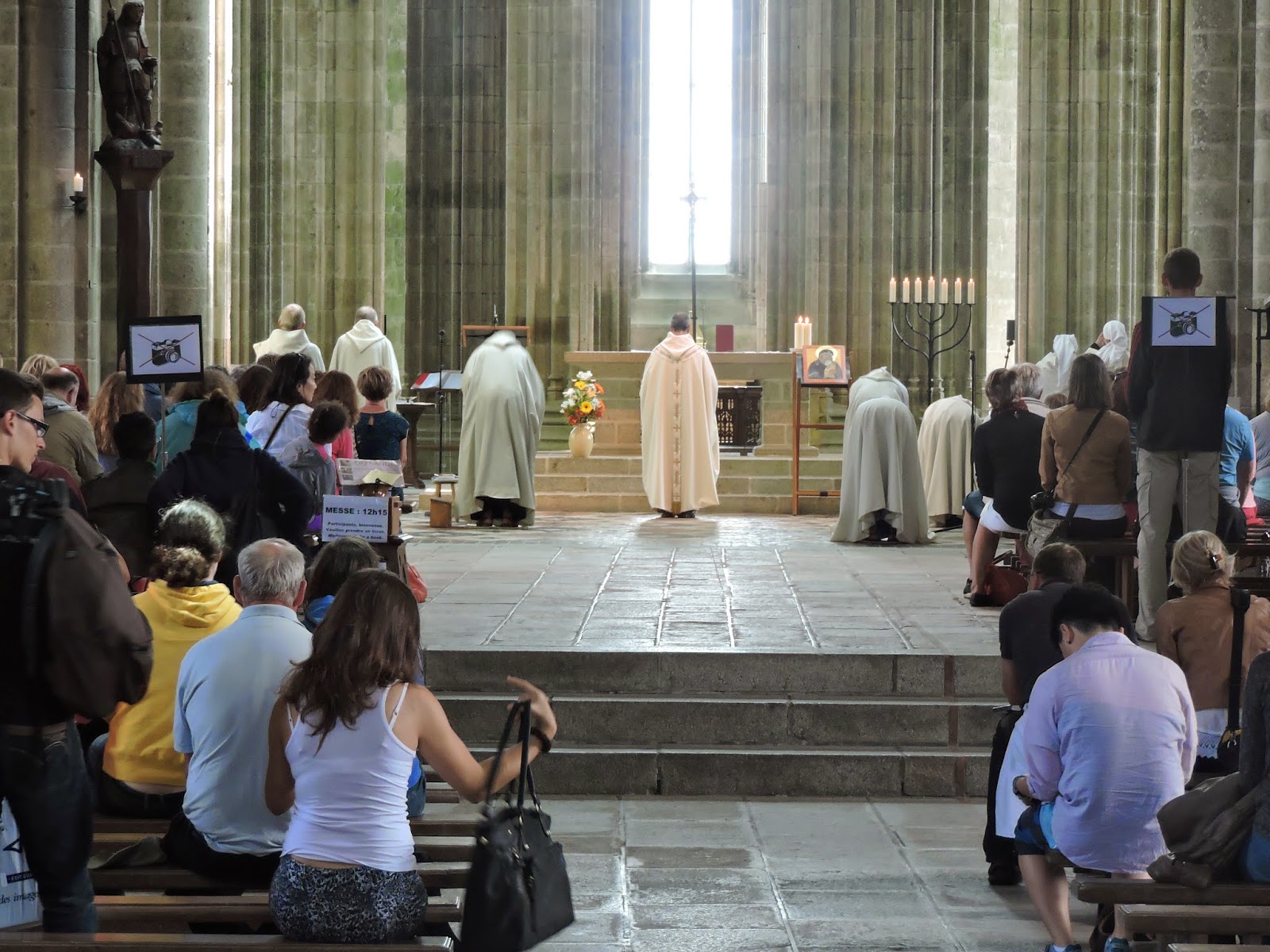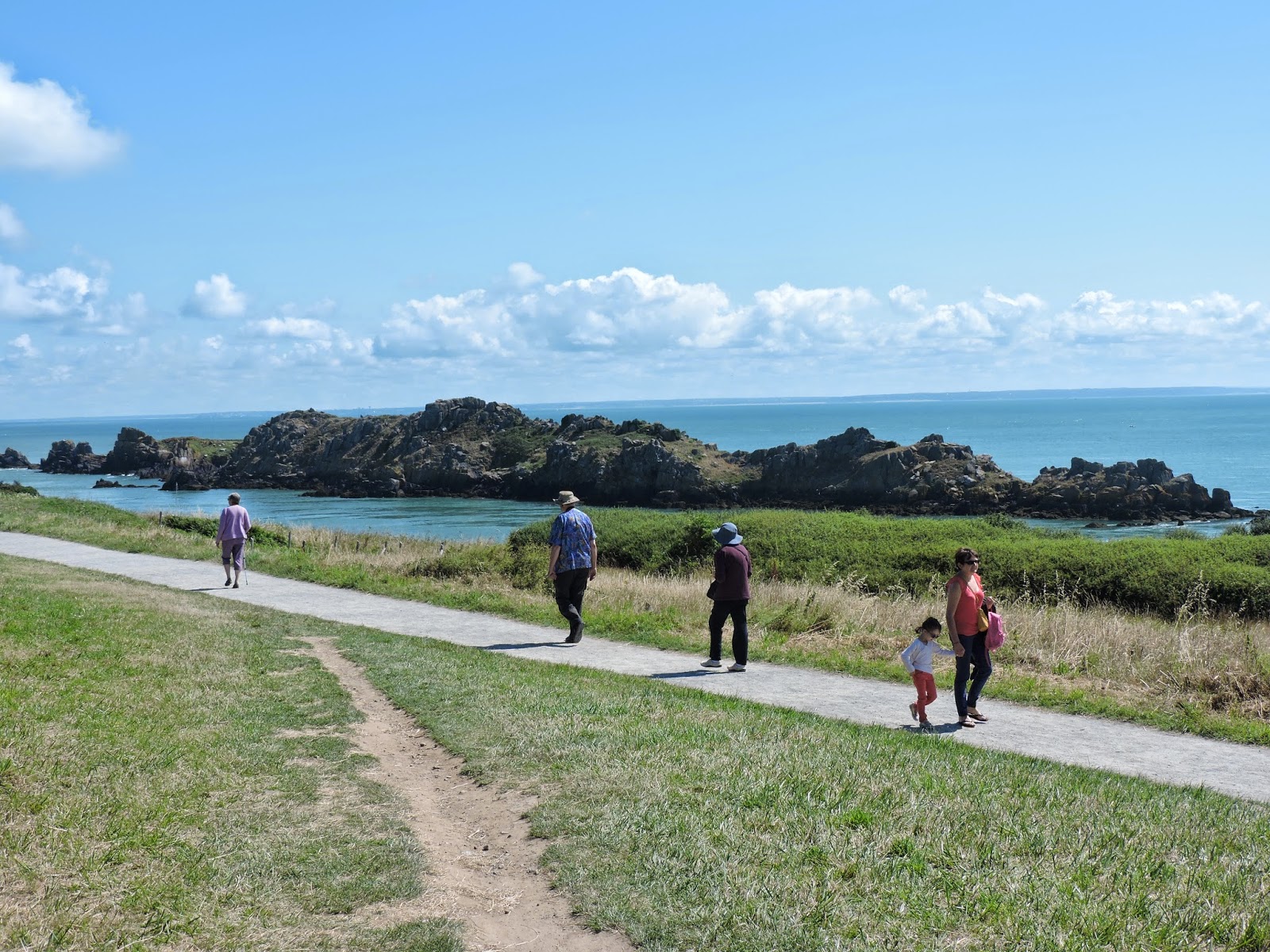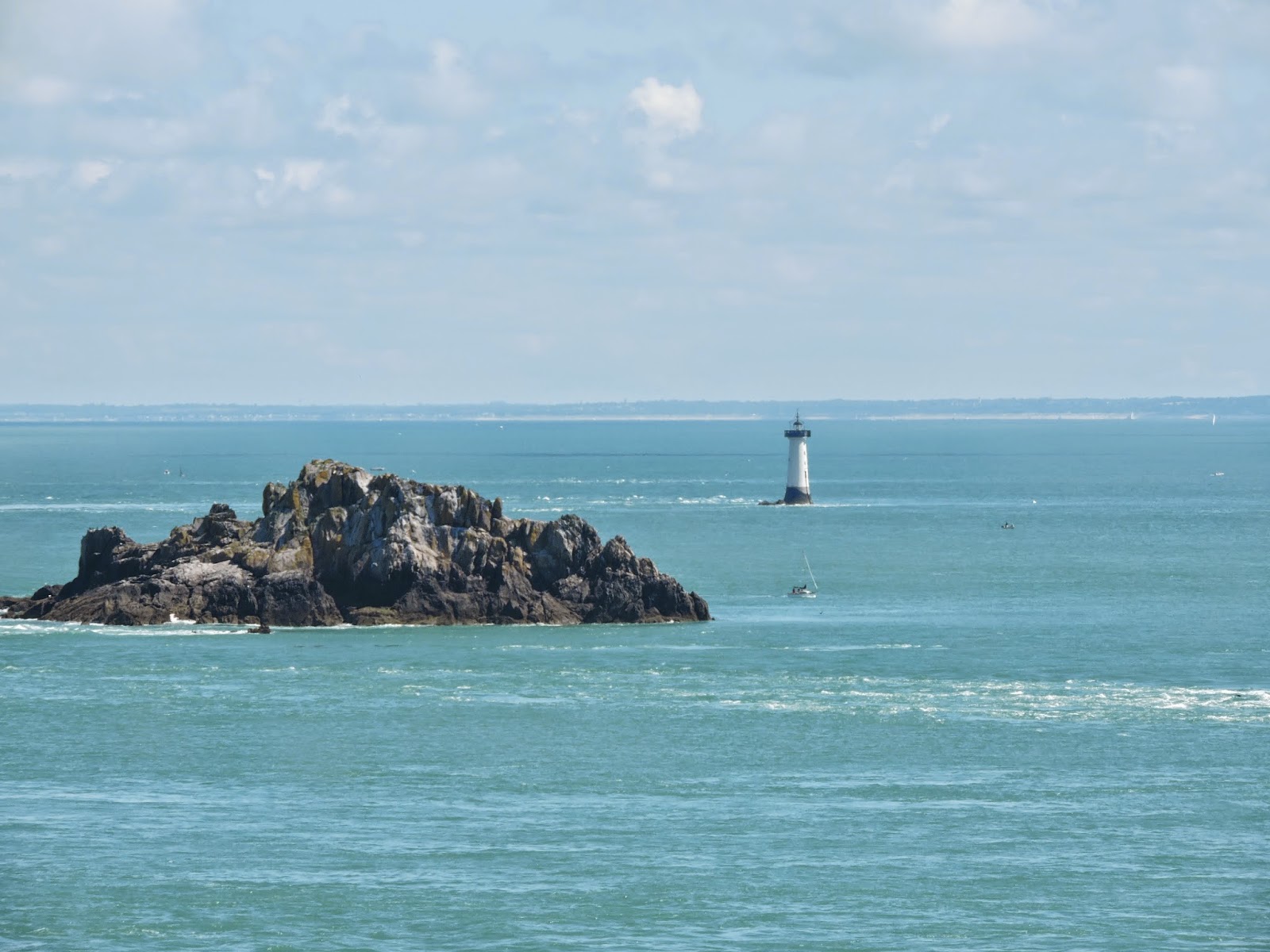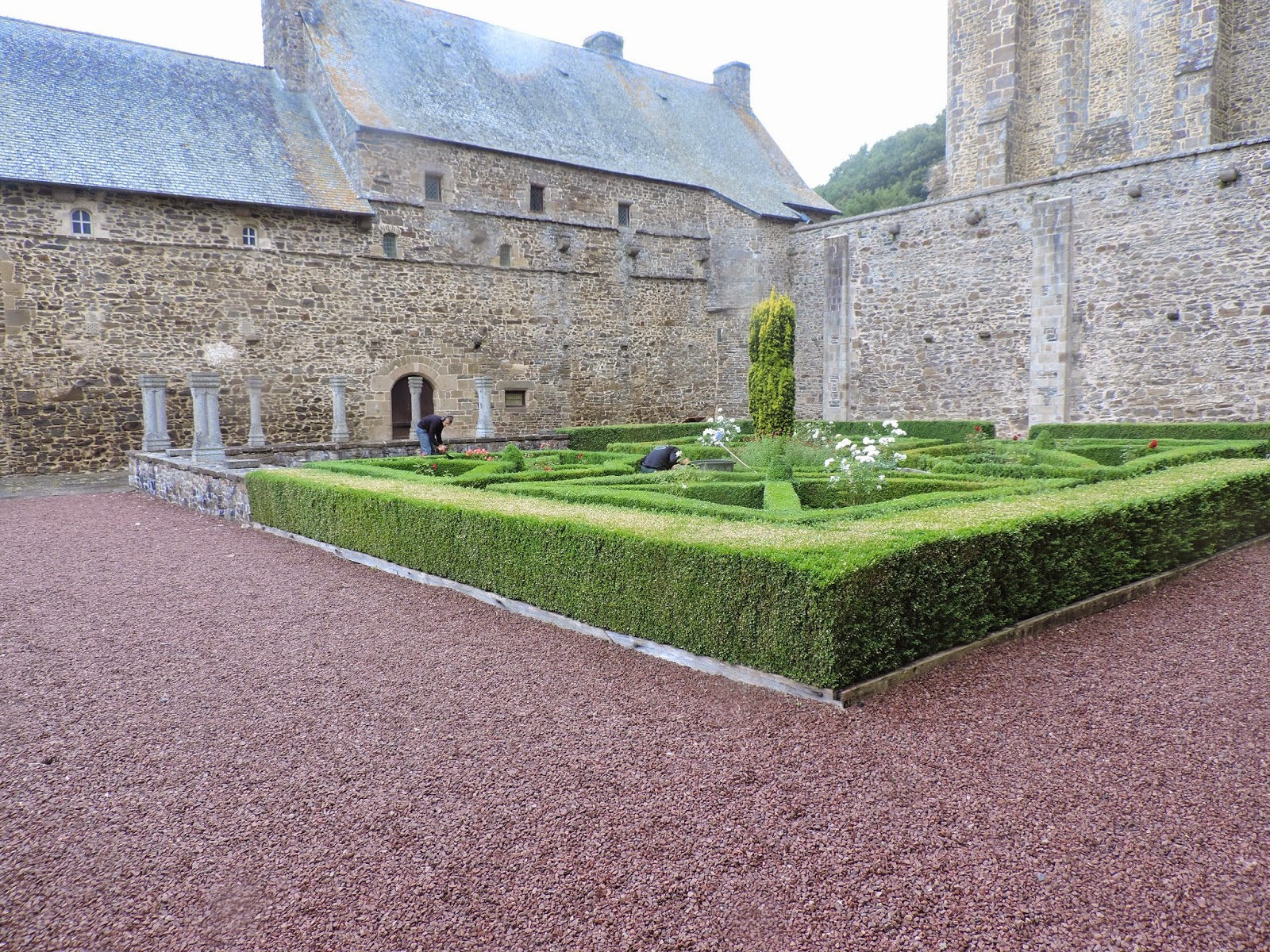After a week in Burgundy we set off for Normandy. The first
day we went as far as
Chaufour Les Bonnières which is not far from Giverny where we spent the night at the Hotel Les Nympheas.
On the way we stopped at this motorway services area for a coffee
The Hotel Les Nympheas
These three horses lived at the back of the Hotel. All three of them had been saved from being put down and were living their lives out in this paddock
The next morning we headed for Giverny to visit Monet's Garden. This is the back of the house (the Pink one on the left
A Cafe beside the car park with Monet's house in the background
The house from the garden
There were many people visiting and long queues to get into the house
In the main garden
In the famous water garden
Mum and my friends Eve and Alan admiring a plant
On our way to our chalet at a camping park near St Michel we passed through Falaise and saw Falaise Castle - the birthplace of William the Conquerer
A statue of William the Conqueror at Falaise
Falaise Cathedral
A street Market in Falaise. This was more of a clothes market
A Zumba demonstration in Falaise Market
Our Chalet at Camping St Michel

Approaching Mont St Michel an Abbey off the coast of Normandy not far from the border with Brittany. The abbey was established by the Normans dating from the 8th century. There is a small village at the base of the Mont which, these day, caters to the many tourists that visit the Abbey.
http://en.wikipedia.org/wiki/Mont_Saint-Michel
http://www.ot-montsaintmichel.com/en/histoire.htm
The parking for visitors to Mont St Michel has now been established some three to four kilometres from the Island and visitors are transported to a shuttle bus which takes them to a point not far from the entry along a causeway. A new bridge which will replace the causeway is due to be completed later this year
The entry is via a gate and then a drawbridge into the village which is full of cafes, coffee shops, gift shops and restaurants. The coffee shop we visited is on the right
Visitors run the gauntlet of this attractions up a steep and narrow street
and finally approach the entry to the Abbey
After paying an entrance fee there are many more steps to climb
My friend Eve standing on a courtyard with a fantastic view - in this instance looking northwards towards Cherbourg
The Couesnon river empties out into the bay at the foot of the island. The bridge that is being built is to replace the causeway which radically changed the environment of the area.
looking westward towards Brittany
The entrance to the Abbey basilica
A small community of Benedictine Monks and Nuns were re-established in the 1950s
They were holding a Mass whilst we were there
Walking out of the church we entered the cloister
and then into the refectory
This device was for ringing the bell
a wall painting
and a saint
Mum and Alan waited for us down in the village
There is a small town called Cancale on the Brittany end of the Bay of St Michel. This photo shows the town with Pointe du Grouin in the background
A nice place for a coffee
8http://en.wikipedia.org/wiki/Cancale
Pointe Du Grouin is not far from Cancale and is a breathtaking place
http://www.brittanytourism.com/discover-brittany/nature/la-pointe-du-grouin
At lunch time my friend Alan decided that we should have the local "Fruits de Mer" for lunch
http://en.wikipedia.org/wiki/Plateau_de_fruits_de_mer
We next went to Bayeux to see the famous tapestry, a record of the Norman Invasion of England in 1066. This is the Cathedral
and a street in the town
Two views I took of the tapestry
http://en.wikipedia.org/wiki/Bayeux_Tapestry
http://hastings1066.com/
and a fantastic animation of the Tapestry
https://www.youtube.com/watch?v=LtGoBZ4D4_E
A Viking longboat on display in the Tapestry Museum
After we left Bayeux we decided to drive along the D Day beaches starting at Pegasus Bridge, the site of the attack to hold the bridge by British Airborne Troops who were landed by glider.
Two views of the Pegasus bridge over the River Orne near Caen
This is not the original bridge, but a newer and stronger bridge able to take the volume of traffic that uses it today. The original bridge is in a museum not far away.
This is a photo of the original bridge taken in 1944 soon after the battles. A wrecked glider can be seen in the background
http://en.wikipedia.org/wiki/Operation_Deadstick
A Canadian memorial at Courscelles to the troops who landed on Juno Beach. Note the concrete bunker just behind the flags
Looking down Gold Beach from the same spot
Canadian Troops landing on Juno Beach in 1944
British Troops landing at Gold Beach in 1944
http://en.wikipedia.org/wiki/Gold_Beach
http://en.wikipedia.org/wiki/Juno_Beach
http://en.wikipedia.org/wiki/Normandy_landings#Juno_Beach
The remains of the Mulberry Harbour near Arromanches. There were two artificial harbours created to supply the troops on the beaches soon after the original landings
http://en.wikipedia.org/wiki/Mulberry_harbour
two original photos of the Mulberry Harbour in use in 1944
A massive gun emplacement at Pointe du Hoq that was taken by US Rangers who had to climb to the top of the cliffs to take them
Pointe Du Hoq is in a strategic spot between Arromanches and the American beach known as Omaha
German prisoners being escorted away after the assault in 1944
http://en.wikipedia.org/wiki/Pointe_du_Hoc
The Church at Ste Mere Eglise which was taken and held by US Airborne Troops in 1944
This dummy paratrooper hanging from the church steeple is a tribute to those US paratroopers and especially John Steele who was hung up on the steeple during the battle - an incident that was immortalised in the film "The Longest Day"
A field gun and a tank on display at the Airborne Museum close by
http://en.wikipedia.org/wiki/Sainte-M%C3%A8re-%C3%89glise
http://en.wikipedia.org/wiki/John_Steele_%28paratrooper%29
This section of the blog is respectfully dedicated to all those who gave their lives in the D Day battles - especially to the memory of a distant cousin,
Derek Patrick Billett of the 9th Battalion Durham Light Infantry who landed on 6 July 1944 and lost his life in action on 14 June 1944.
It is also dedicated to the memory of my uncle Captain Alan Phillips who was very proud that as a very junior merchant navy officer he took part in the supply operation through Mulberry Harbour.
All that remained of our trip was the last day when we visited two places on our way to Cherbourg to catch the ferry back to Portsmouth.
The Abbaye de Hambye near St Lo from the 12th Century
http://en.wikipedia.org/wiki/Hambye_Abbey
the site of the cloisters now demolished
Inside the nave
Some people working on the restoration of the building
Pirou Castle dating from the 12th century
http://en.wikipedia.org/wiki/Ch%C3%A2teau_de_Pirou
























































































